‘Blood cannot flow in someone else’s veins: there is no sovereignty without our own microelectronics’
The state is going to support the transition to domestic digital “rails”, the head of the Ministry of Digital Developemnt of Russia said at the Kazan Digital Week forum
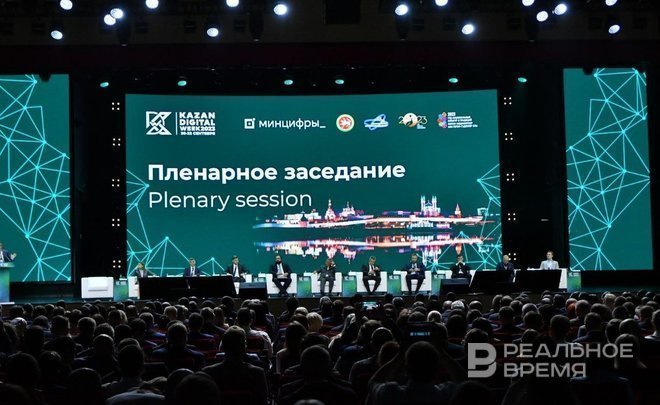
The transition to domestic digital “rails” in the economy will be supported by the state, but with the condition that software solutions will belong to Russian developers, they can be replicated. This was stated by Minister of Digital Development of Russia Maksut Shadaev at the plenary session of the International Forum Kazan Digital Week. According to him, state support will be provided within the framework of the future state programme with the conditional name “National Data Economy”. It will replace the national project “Digital Economy” worth over 100 billion rubles. But the future of IT industry is associated with domestic microelectronics factories. “Google has its own chip, Amazon has its own processor for data centres. And in the next 10 years, the appearance of the industry will be determined by microelectronics," Gulnara Khasyanova, the head of Mikron company, is sure.
“They can see you from above”
No exhibition held within the framework of the Kazan Digital Week forum is complete without technological innovations. This time the exposition could surprise federal guests. “Definitely not shooting, but only recording a violation?" the head of the Ministry of Digital Development of Russia, Maksut Shadaev, examined a test sample of an unmanned drone with a smile, which was created by order of the regional traffic police department. Police Lieutenant Colonel Rustem Garipov told the guests that the flying complex for recording violations on the road is currently being tested and is designed to “catch” those who enter the oncoming lane in violation of the rules. At the same time, they are not going to abandon ground-based surveillance cameras — flying UAVs are going to complement the army of controllers on the roads. However, he did not specify when they will be lifted into the sky over the highways.
“We do not seek to fine motorists. The main thing is they know that they are seen from above! And they do not violate traffic rules," he said in a conversation with Realnoe Vremya.
There was a Moskvich 3 road patrol car with an integrated Cyber Sheriff system right next to him. Its peculiarity is that it conducts 360-degree video shooting around the car, transmitting data online.
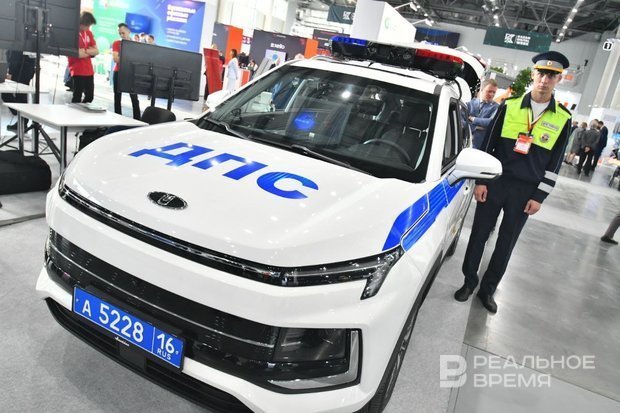
The automotive topic began to “play” from the first minutes of viewing the exhibition. Already before entering the exhibition hall, the guests stopped in front of the Atom electric car and left signatures on symbolic number plates. Anatoly Kiyashko, the deputy director general of Atom for interaction with the authorities, said that about a year remains before the start of production of the first production car.
Maksut Shadaev also lingered near the stand of the National Union of Educational Equipment Industry Enterprises (NSPPO). At first glance, it looked like a children's play area with construction kits, video books, and children's computer programmes. But in fact, these are 15 educational IT collections for teaching children from 4 years and older.
“We are used to perceive information on paper, but the modern generation does not read much. For them, we have developed programmes that teach them to quickly assimilate visual information," said Irina Egorova, the president of the NSPPO.
She noted the importance of regional cooperation for the development of educational infrastructure, offering to equip kindergartens and schools with them. “We have a detailed meeting with the head of the Ministry of Digital Development ahead," she said. Then he was introduced to the latest solutions in the field of cybersecurity. They were represented by Kazan, Tomsk and Moscow Region IT companies. In the last two years, most businesses, banks and all those who work online have been experiencing constant attacks.
In a word, the exhibits have practical value and are able to make life better.
“Everything that will happen at Kazan Digital Week 2023 has an applied character both for our state and other participating countries," Rustam Minnikhanov assured at the opening of the forum.
The tour lasted almost two hours, and as Maksut Shadaev later admitted, he did not have time to study the novelties on the move.
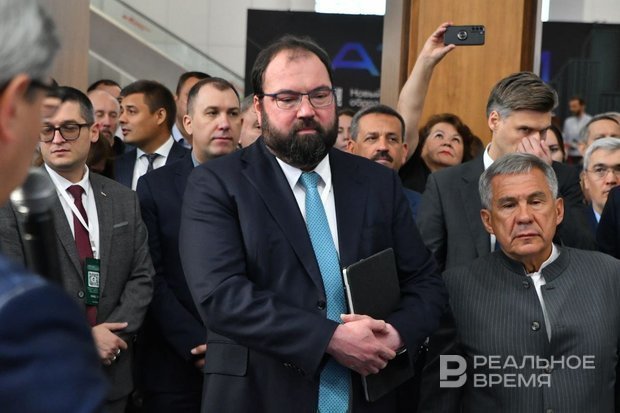
Colleagues from CIS countries also came to the forum.
“The scale of the exhibition of technological solutions is impressive, we look, we choose. We are particularly interested in solutions in the field of digitalisation of the municipality and cybersecurity," said the director of the IT Technopark of Ashgabat, Tadzhii Nurbediev.
According to him, Turkmenistan has a presidential digitalisation programme.
“The country has embarked on the course of digitalidation. Now we have digitalised public services. We provide a lot of services in real time, electronic banking works," Nurbediev noted.
Systemically significant suppliers will have the opportunity to supply without tender
The plenary session turned out to be less applied in its content than the exhibition. Although the main topic sounded quite specific — “Digital technologies: new trends and experience in implementing IT solutions”. In his greeting via video broadcast, Russian Prime Minister Mikhail Mishustin assured that state support for the IT industry will continue. “The government is taking all measures to stimulate the transition to domestic digital technologies," he said.
Thirty-five industrial competence centers were launched this year to replace foreign digital products and solutions in various sectors of the economy. Besides, the State Duma is developing a bill on systemically important suppliers, which will facilitate access to orders from state-owned companies and large industry customers without tender. According to him, the demand for individual software products in 2022 increased 10-12 times, and the volume of sales of IT companies' services increased by 22%, to 2,2 trillion rubles. Over 820 thousand programmers work in the industry (+15% by 2022).
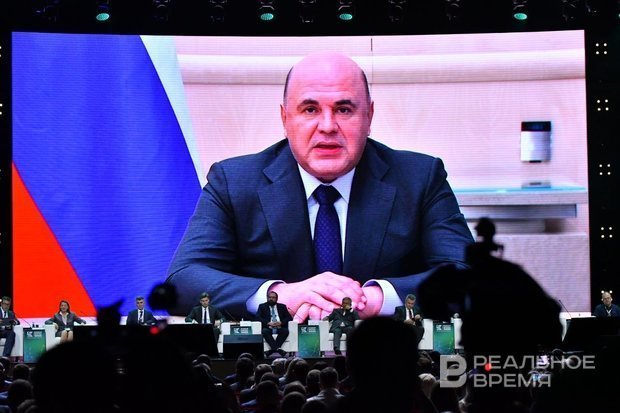
Transitional moment
“There is nothing to add more than Mishustin said," the head of the Ministry of Digital Development of Russia continued the topic. According to him, the volume of benefits that the industry has received is unprecedented. All conditions for development have been created. In a word, the window for import substitution is open. The government's main focus will be on supporting the digitalisation of large industrial companies. To do this, the government is going to support those who are forced to replace foreign software solutions, but on condition that the developments remain and it will be possible to replicate them.
The future state programme under the conditional name “National Data Economy” can become a resource source. According to Shadaev, it will replace the national project “Digital Economy”, which finishes in a year.
“It is a unique moment now. The forum is an opportunity to discuss priorities in certain areas and what to put into the new programme National Data Economy," he noted. Shadaev sees its content in three directions, including artificial intelligence, big data. “We need to discuss what digital education and healthcare will look like... We need to formulate these goals and agree on where we are going," he outlined the task.
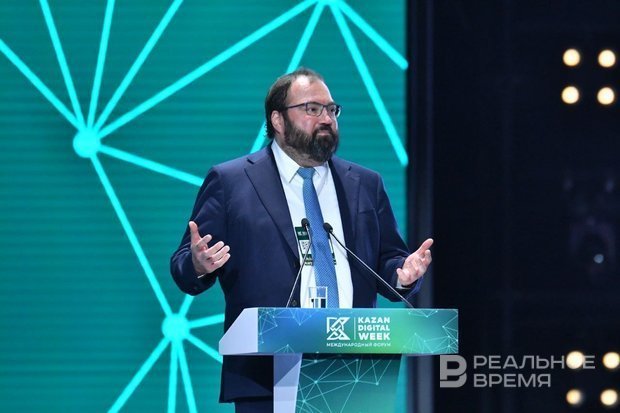
In conclusion, he told about the preliminary results of the national project. In his opinion, the main result of the first programme is that all services have been brought online and they can be obtained without leaving work. Currently, Gostech is creating additional services to shorten the terms of services.
Maksut Shadaev explained what he sees as the key to digital transformation: “I always say it's the involvement of the chief executive. To be honest, I would like to thank the president of the republic, because without him there would be no transformations, regional innovations.”
“If the blood of the economy of the 20th century was oil, hydrocarbons, then the blood of the economy of the 21st century is information. It determines the competitive advantages that states have <...>. If we figuratively talk about information as about blood, then it cannot flow in someone else's veins, because if it flows in someone else's veins, it is not yours, but someone else's. This figurative comparison speaks of the need to develop our own hardware base. There will be no technological sovereignty, which means political sovereignty, if there is no domestic electronics. And we have felt this fully with you over the past year," said Deputy Minister of Industry and Trade of Russia Vasily Shpak.
Gulnara Khasyanova, the president of Mikron company, in turn, urged the IT industry to invest in the creation of own microelectronics factories following the example of global companies.
“Where do IT giants invest their money? Google has its own chip, Amazon has its own processor for data centres, Huawei has its own microelectronics. The Chinese concern for the production of electric cars is designing its own microelectronics factory," she said. In her opinion, the trend towards creating its own element base will determine competitiveness in the next 10 years, since IT developments will be tied to its own microelectronics. This is confirmed by that almost all chip factories have contract manufacturing facilities for end-manufacturers of electronic products.
Khasyanova believes that it is necessary to build cooperation on this path, not try to do “everything to the last nail in our country.”
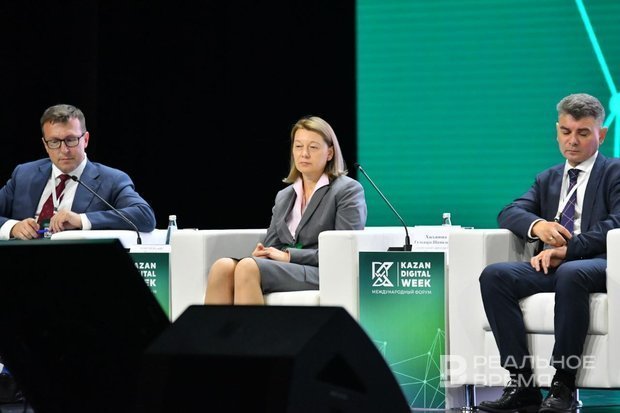
“The local market may not ensure the reproduction of investments, so the agenda will be relevant for other countries, and not just for Russia alone," she explained, adding that there will be enough those willing. Thus, technological sovereignty can be preserved.
“The last 2 years have shown that if we conduct our own policy, then there will be fewer foreign countries influencing technological sovereignty. We need to look for a model of cooperation in which the management system of the entire critical infrastructure will retain sovereignty.”
The on-site editorial office of Realnoe Vremya worked on the site of Kazan Digital Week International Forum.